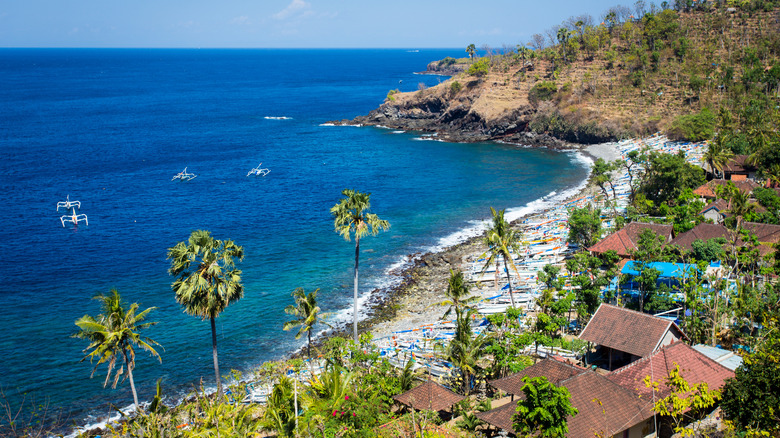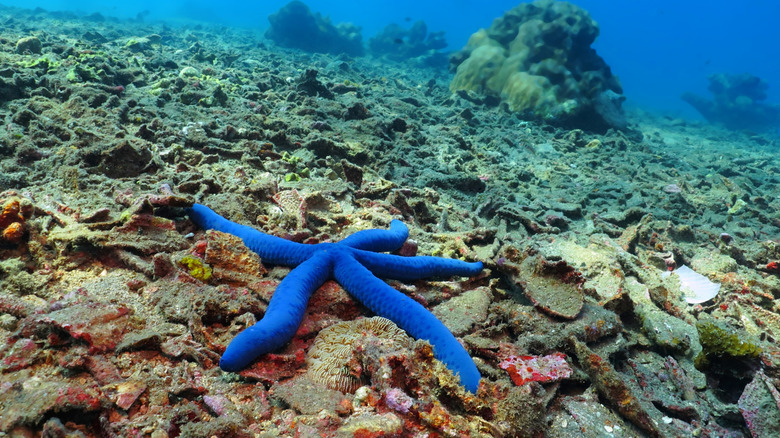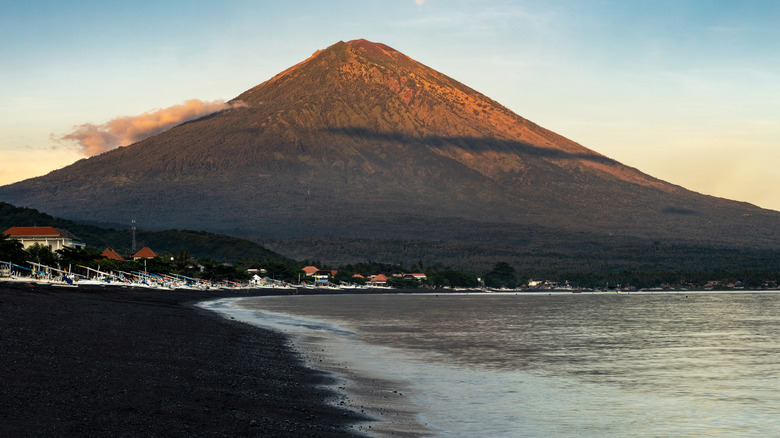If gods could decide where to reincarnate on Earth, they’d choose Bali. Steeped in spirituality and traditional arts, the “Island of the Gods” has long attracted visitors from all over the world — some of whom seem to trade its sacred essence for social media likes. Despite the island’s commodification, Bali is still home to places where the ancient philosophy of Tri Hita Karana remains intact. Amed, a village on the island’s Eastern coast, is a living example of harmony between the human, the natural, and the spiritual realm.
Located a 2- to 3-hour drive from Ngurah Rai International Airport, Amed is a coastal fishing town extending nearly 10 miles along the shore. During the dry season, which lasts from March to September, the location offers a variety of water activities — from diving and snorkeling to simply watching the sunset from a boat or one of its black sand beaches. Its dark color comes from volcanic lava rock, and the sand is believed to have healing properties which may help treat underlying health conditions.
Although the atmosphere may feel less luxurious than some of Bali’s best beach resorts, this fishing town still offers the wellness experience you may need. Bali’s hidden gem is made up of seven villages, each with its own unique and distinct name: Amed, Jemeluk, Bunutan, Selang, Banyuning, Aas, and Lipah. It’s also a perfect location to put into practice your fishing skills, with several fishing charters offering guided tours and equipment — some even host fish barbecues on the beach where you can taste your fresh catch. Here, tourists can also experience a day in the life of a fisherman, starting at 5 a.m. with a sail on their jukung — traditional wooden boats painted in vibrant colors.
Exploring Amed’s underwater world
Amed is one of Bali’s underrated places where you can get all the beauty with fewer crowds. Scuba diving is a popular activity here, allowing you to enjoy the marvels beneath the sea at your own pace. The water temperature is between 80 and 84 degrees Fahrenheit and the visibility is excellent — ranging from 50 to 80 feet. Among a variety of marine life inhabiting the Indian Ocean — like angelfish, turtles, sea horses, blue starfish and more — you’ll get the chance to explore the famous Japanese shipwreck. Situated in the village of Banyuning, this 66-foot-long shipwreck is a must-see. Believed to be of Japanese origins — based on the design of a well-preserved toilet — it likely sank during World War II and has since attracted the attention of many diving enthusiasts. If you’re looking to deepen your sense of exploration, visit the marine art display in Jemeluk Bay — a man-made art installation reminiscent of a temple featuring statues of apsaras of Hindu mythology, boxes of treasure, and the lion-like statues of the Barong, now all beautifully encrusted with coral.
If deep water is not your thing, you can still marvel at the underwater world and its coral gardens through snorkeling. Amed Pyramids is composed of both natural and constructed corals — the latter formed by around 20 pyramid-shaped concrete bricks built by the local community to support marine life and foster the growth of a new coral reef. Among Amed’s natural corals are hard corals, soft corals, marine fans, as well as black corals. Bali’s coral reefs are part of the Coral Triangle, a region in the Western Pacific waters dedicated to supporting coastal and marine ecosystems. Anyone can contribute by adopting a coral through conservation programs run by associations like Calypso.




